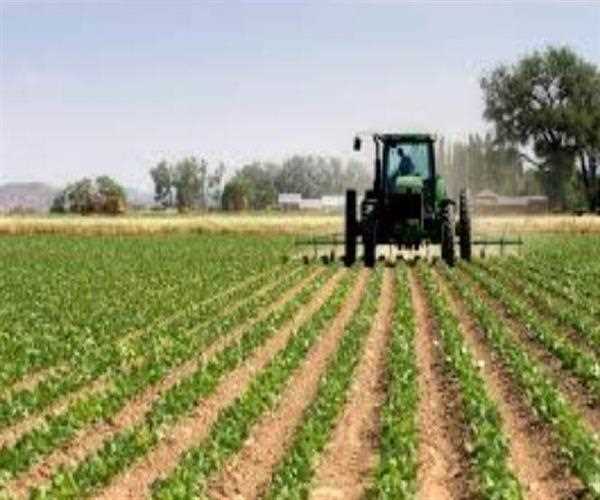
15-Apr-2020
Coronavirus Pandemic : Saving Agricultre Sector In South Africa
As the COVID-19 pandemic powers nations to close their fringes, their rural parts are going up against significant difficulties. Indeed, even in nations that are probably not going to confront nourishment frailty –, for example, those in Europe and North America – ranches are confronting serious work deficiencies, inferable from new hindrances that keep ease laborers out. What's more, the effect of the disturbance on the stockpile of laborers is probably going to prod changeless moves inside the area after the pandemic closures.
The dangers inalienable in relying upon remote occasional specialists have emerged in a few European nations, including France, Germany, Italy, and the Netherlands, which rely upon work from Eastern Europe. Between outskirt terminations and fears of disorder and isolate, those laborers are not coming this season, and numerous Western European harvests are set to decay in the fields.
In parts of the United States, fears about rural work deficiencies were mounting even before the COVID-19 emergency. Americans would prefer not to work in the fields, so ranchers rely to a great extent upon occasional Mexican transient specialists. Members in the H-2A visa program – covering the individuals who have been employed to fill horticulture occupations enduring short of what one year – including 10% of all farmworkers in the US.
However, the expense and multifaceted nature of the H-2A program has since quite a while ago added up to a noteworthy hindrance for transient specialists. With the COVID-19 pandemic, that challenge has been intensified. Despite the fact that US consular officials may now forgo the visa meet for first-time candidates and returning specialists, H-2A handling has eased back extensively. Add to that new wellbeing and security troubles for businesses, who must maintain social-separating conventions grinding away, yet additionally, in the lodging and transport they give to H-2A laborers, and rural efficiency is set to decay fundamentally.
After this experience, it appears to be impossible that ranchers will come back to nothing new. Rather, many will most likely endeavor to alleviate the dangers coming from reliance on remote regular specialists via robotizing a greater amount of their tasks.
On the off chance that huge farming makers in cutting edge economies make these strides, their friends in creating nations may take action accordingly, even in places without work deficiencies. For instance, South Africa has a huge stockpile of incompetent, regularly jobless specialists appropriate to cultivate work. It does, be that as it may, face gifted work deficiencies.
READ HERE MORE: USA Needs To Increase Testing Capacity For Coronavirus Pandemic
With the whole nourishment store network having been named "fundamental" during the COVID-19 lockdown, farming exercises have proceeded with continuous. Indeed, even before the COVID-19 emergency, South Africa's 2012 National Development Plan (NDP) had set the objective of expanding work in agribusiness and agrarian preparing by around a million by 2030, including through the advancement of work concentrated subsectors and expansion in farmland.
Up until now, such endeavors have prompted the extension of yields like a citrus natural product, macadamia nuts, apples, table grapes, avocados, and soybeans. Work in essential farming developed from 718,000 in the last quarter of 2012 to 885,000 in the last quarter of 2019 – a 23% expansion.
In any case, after the pandemic, innovative dissemination is additionally prone to quicken, not due to local economic situations, but since of the need to contend in worldwide markets with cutting edge nation makers that do grasp mechanization. Truth be told, the NDP likewise expects to increment agrarian interest in the water system, support profitability, and extend send out business sectors – all destinations that could empower, or require, more prominent mechanization.
The equivalent goes for the expansion in horticultural land. South Africa has a lot of room to do as such, particularly in the previous countries and failing to meet expectations land-change ranches. The regions of KwaZulu-Natal, the Eastern Cape, and Limpopo, on the whole, have 1.6-1.8 million hectares of underused arable land, as per a recent report by McKinsey Global Institute. Mechanization could be incorporated with the way toward building up this land for horticulture.
All the more comprehensively, during the post-COVID-19 recuperation stage, policymakers and industry in all nations with enormous scope agribusiness should give close consideration to patterns in robotization. Concerning laborers, while rural employments in nations like South Africa are probably going to stay abundant, the individuals who rely upon regular occupations in the propelled economies ought to get ready for considerably more vulnerability ahead.

Content Writer/Journalist
I am a content writter !
Join Our Newsletter
Subscribe to our newsletter to receive emails about new views posts, releases and updates.
Copyright 2010 - 2026 MindStick Software Pvt. Ltd. All Rights Reserved Privacy Policy | Terms & Conditions | Cookie Policy